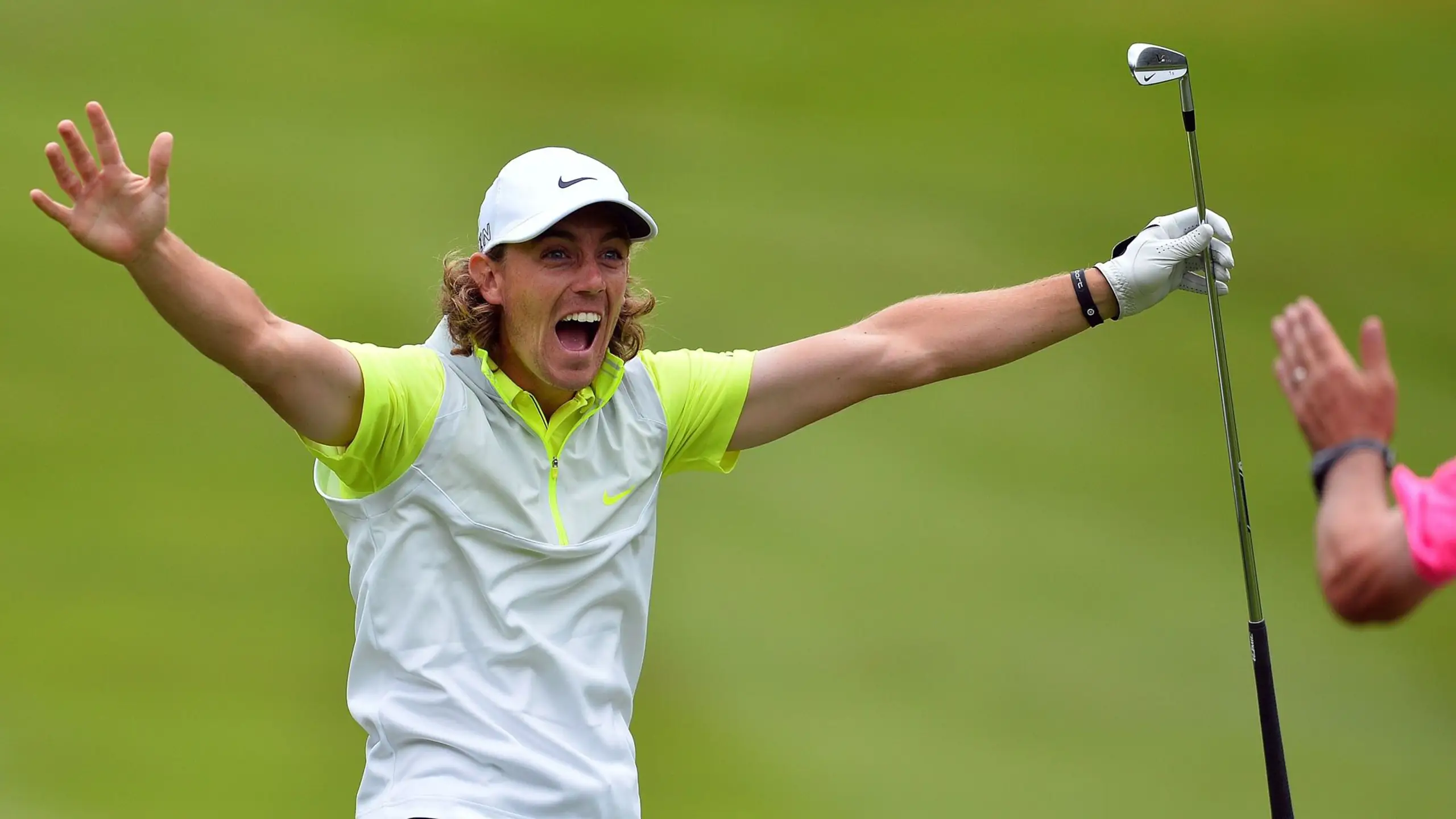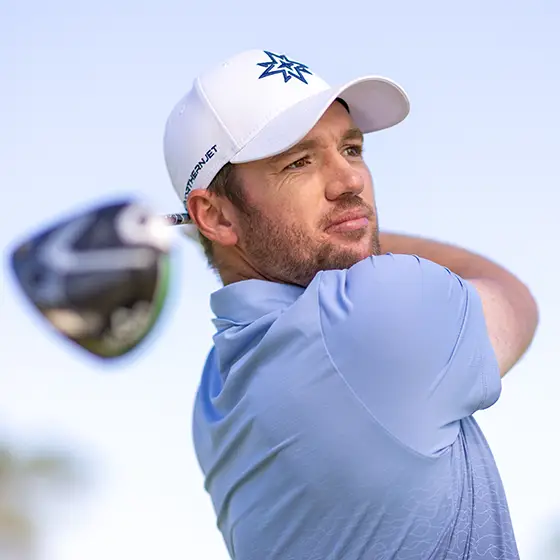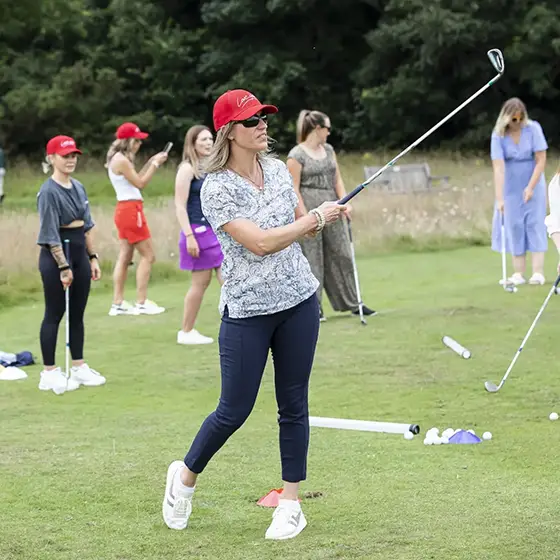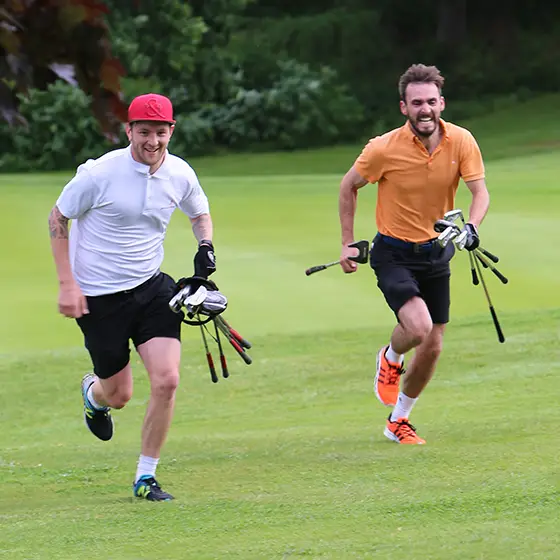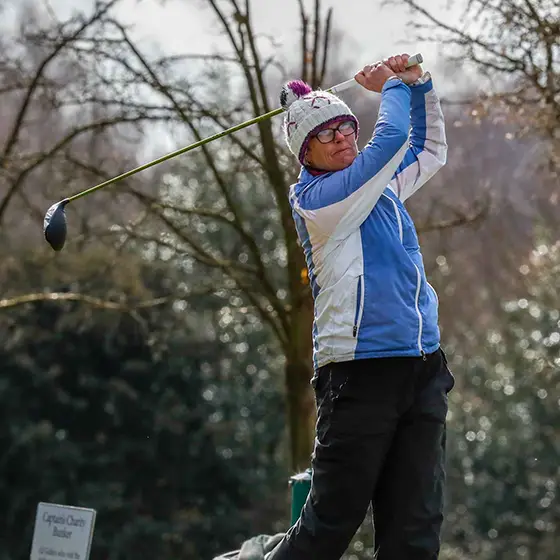Alan Covey has developed some of golf’s greatest names – here’s how he spot’s star talent on the course
Alan Covey, 65, is an England Golf National Selector, tasked with developing young players and bringing the likes of Tommy Fleetwood and Matt Fitzpatrick to the fore.
“I was a good junior golfer. I started playing at 13, living in Brighton, and I reached a good standard but I gave it up because of career and family commitments,” explains Covey.
“Then, in my 30s, I got back into it and became captain of a golf club.” Being a golf club captain is, in Alan’s words, ‘a very social role’. Club captains act as representatives of a club. “You organise matches, social events, and charity fundraisers. My club was a public one, not private, so it was more accessible. I loved the role and enjoyed giving back – and I found working with juniors incredibly rewarding.”
Covey’s dedication to the sport and ability to identify and support young players took him in a new direction away from just playing and arranging club parties.
“When I became club captain, the juniors approached me and asked if I’d take over their program,” he explains. “I like to do things properly, so within three months, I secured council funding for free golf sessions on a Thursday night, arranged for three golf coaches to volunteer, and the kids started coming in. We went from zero to 50 juniors in three months – ranging from 7 or 8 up to 16 or 17.”
Spotting talent in young golfers
Covey was soon spotted himself and went from running junior sessions at his local club to becoming the Regional Manager for junior golf (boys) in Sussex and for England Golf in 2004 – overseeing the development of young players.
In 2016 he was awarded England Golf’s Volunteer of the Year award for his ‘encouragement and dedication to junior development’.So what’s Covey’s selection secret to helping young golfers realise their potential?
“There’s a lot of research involved, and golf is such a global game you can’t afford to miss anything. I’ll physically go and watch players, walk a course with them, see how they react under pressure rather than just looking at scores and handicaps.”
“Performance in high-pressure situations is what really matters – and sometimes it’s not about their best game, but how they handle their worst game. If a player can still shoot a low score even when not playing their best, they’re obviously a player that’s worth looking at.”
Covey’s role includes sharing his knowledge and experience with other managers, organizing events – national championships for junior boys and girls – and taking England junior teams to overseas events.
“The key is ensuring the young players enter the right tournaments. I always advise my regional managers to sit down with players and plan their year properly. Talk through with them how they’re playing, what handicap they’re at, which events they can qualify for and use that to plan out their year ahead. That way they don’t burn out, and their motivation doesn’t wane because they’re playing in the wrong tournaments.”
When I became club captain, the juniors approached me and asked if I’d take over their program
Reaping the rewards
Covey describes his role as a ‘fascinating job’ and one that comes with plenty of highs. “This year (2024), we came second in the World Championships, won the European Boys and Girls tournaments, and had a winner in the European Young Masters. For England, that’s a great achievement.”
“One of my best experiences with the juniors was in Canada at the World Invitational in 2016. We were third going into the final day against Canada and the U.S. On the last hole, I told the team they had to go for the green in two over a lake. They all made it, while the Americans and Canadians went in the water! We won the World Championship on that hole! We delayed our flight home and celebrated at Niagara Falls – an unforgettable moment.”
Perhaps a true reflection of how impactful Covey’s role is comes when he lists the juniors he’s worked with in the past – many of whom he’s still in touch with today.
“Matt Fitzpatrick is one standout,” says Covey. “He played for me in the Nations Cup years ago. Even then, he was studious, always writing things down, first on and last off the course. I knew he’d make it. Others like Dan Bradbury, Dan Brown, and Tommy Fleetwood have also come through our squads too.”
“I attended the Masters with Matt Fitzpatrick, which was another incredible experience. Moments like these make the early mornings and hard work worthwhile.”
Advice for starting out
So what advice does Covey have for youngsters wanting to get into golf? “Play with better and Seniors too whenever you can. It helps develop different skills beyond just hitting the ball far. You’ll get a greater depth of golf knowledge and finesse your short game around the green.”
“Also, the actual clubs need to be proactive, they need to offer consistent weekly sessions so juniors always have somewhere to go,” says Cover.
But it’s not always easy. “I thought when I left Sussex that the systems I put in place would continue, but sometimes you need a strong personality to drive things forward. Some clubs even hire professionals to take on roles that were previously volunteer-led. Regular scheduled junior sessions are key to getting kids involved.”
Get into golf coaching with England Golf










